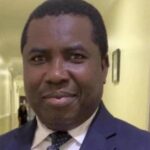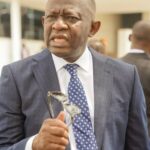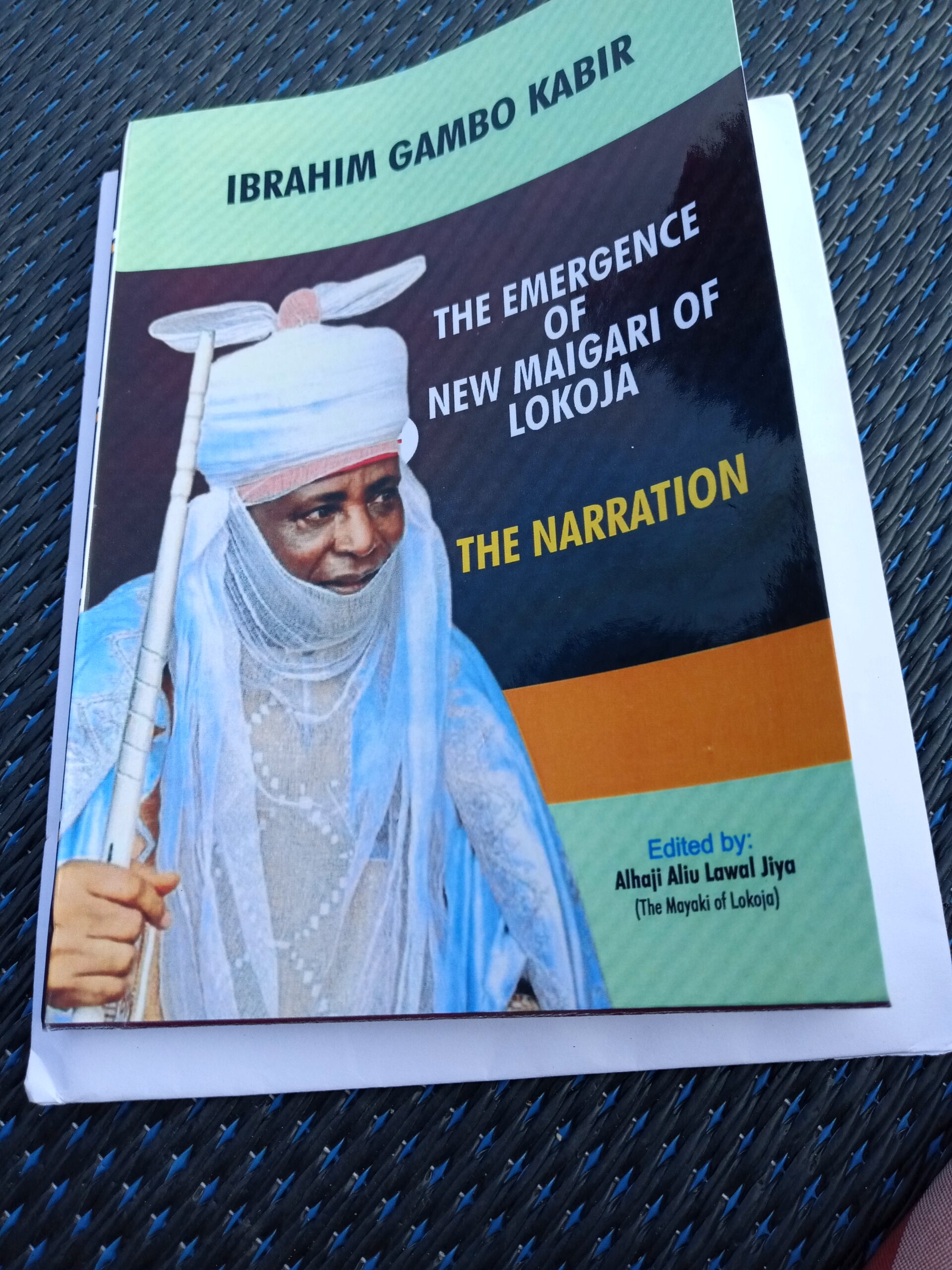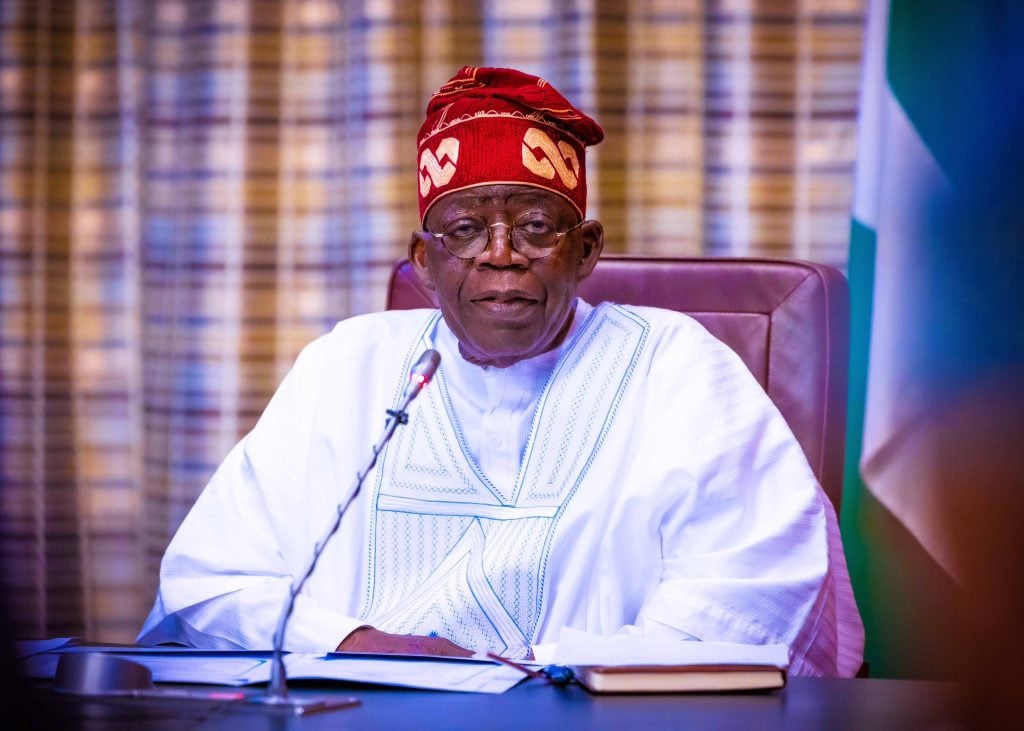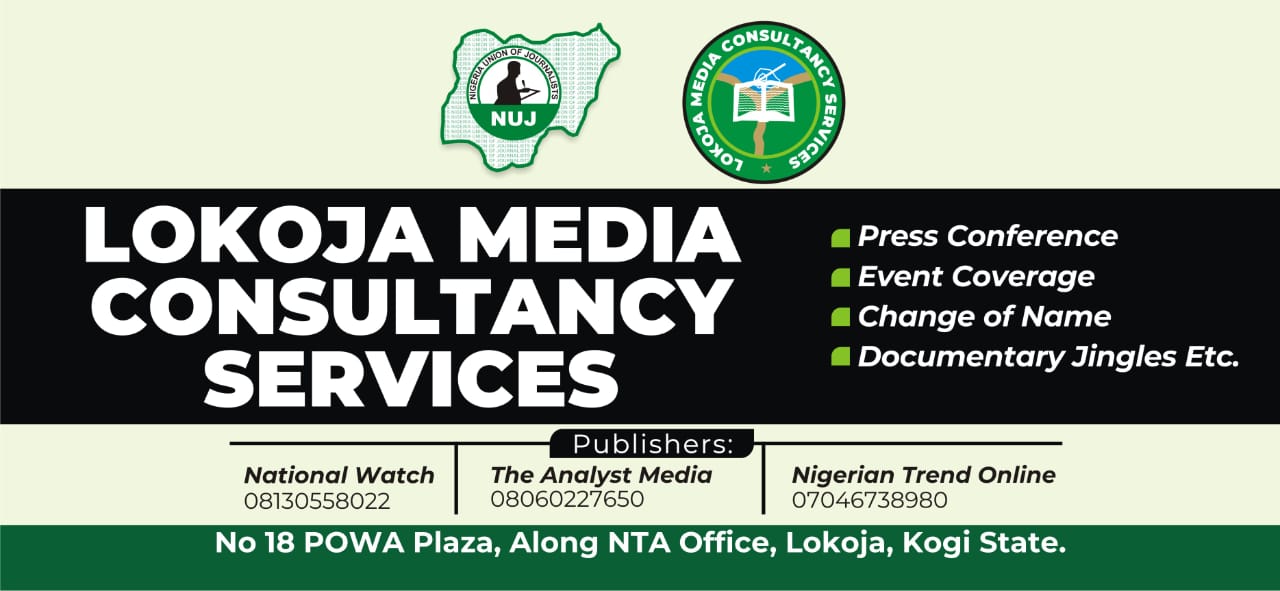
By News Desk
The northern region is the stronghold of the ruling APC, as it governs 14 of its 19 states. But this is the first time the party is presenting a southerner as its presidential fl
What fate awaits the presidential candidate of the All Progressives Congress (APC), Bola Tinubu, in the northern states in the 2023 election?
The question is of interest to political observers because the region is the stronghold of the ruling party, as it governs 14 of its 19 states, but this is the first time the party is presenting a southerner as its flag bearer.
Mr Tinubu, a former governor of Lagos State, polled 1,271 votes at the APC primary on June 8, defeating 13 aspirants after seven others stepped down for him at the convention ground.
He will slug it out with the candidates of 16 other parties in the February 25, 2023, general election, including Atiku Abubakar of the People Democratic Party (PDP), Rabiu Kwankwaso of the New Nigeria People Party (NNPP) and Peter Obi of the Labour Party.
Patient courtship
Before declaring his intention to run for president in January, Mr Tinubu had been the leader of the APC in the South-west zone, where he had been influential since the beginning of the Fourth Republic in 1999. However, northern state governors provided the most critical support that helped him to win the party’s nomination.
This did not come as a surprise to close observers because Mr Tinubu in recent years had taken deliberate steps to build alliances with political leaders in the region.
Initially, some northern APC governors did not support Mr Tinubu because of their own ambitions. But he eventually won them over, helped no doubt by the position of a majority of them that the South should produce the successor to President Muhammadu Buhari next year. But he had also deliberately courted many of them over the years.
One of the governors, Muhammad Badaru of Jigawa, who eventually stepped down for Mr Tinubu at the primary, narrated how the former Lagos governor helped him to win his election as governor.
Mr Tinubu announced his presidential bid in January, after numerous engagements with northern leaders. He was the Guest Speaker at the prestigious Arewa House lecture series in Kaduna last year, an event he preceded with visits to Kano and Katsina states within a week.
While in Katsina, last March 24, he donated N50 million to victims of a fire disaster at the city’s central market.
Speaking on the occasion, Mr Tinubu said: “For the fire disaster, I am personally most touched because I am a son of a market woman leader. My late mother was the president of the Nigerian Men and Women Market Association.
Bola Ahmed Tinubu (Photo Credit: @OfficialBAT)
Bola Ahmed Tinubu (Photo Credit: @OfficialBAT)
“We, together with my mother, had been to Katsina several times for political rallies and Durbar. Coming to Katsina, it is not only to celebrate but to share the joy and sorrow, particularly in this period where Nigerians need each other both in pain and joy. We will continue to pray that Nigeria will be peaceful,” the former governor said.
Arewa House Lecture
Speaking at the opening of the 2021 annual Arewa House Lectures, which he chaired in Kaduna on March 27 that year, Mr Tinubue called for massive investment in job creation to address the economic and security challenges of the region.
The theme of the lecture was “Reduction of the Cost of Governance for Inclusive Growth and Youth Development in Northern Nigeria in a Post- COVID-19 Era”.
He said the government must think outside of the box in finding solutions to the challenges posed by unemployment. According to him, frustration and despair among the youth were largely caused by chronic poverty and the breakdown of social institutions.
“Building vital infrastructures such as irrigation and water catchment systems will help agriculture, arrest desertification, and provide jobs.
“Another readily available area primed for investment is the agro-allied industry which, for the northern region, is particularly advantageous,” he said.
ⓘ
On the herder/farmer dispute, he said the government “must appreciate that martial security measures alone will not suffice.
“We cannot resolve this problem by holding on to one-dimensional answers. We must all be dispassionate in our search for solutions. These challenges are multi-faceted and so the solutions must be.
“The issue of insecurity, unemployment, and extremism has many things to do with governance, over time. We must tackle our deep and widespread poverty.
“If we limit the government’s role under the erroneous assumption that government spending is intrinsically unproductive, then we tether ourselves to failure.
“The development of any populous nation has always been dependent on the ability of the government to allocate sufficient funds to projects and programs that create and encourage enduring growth and employment,” Mr Tinubu said.
The 12th Colloquium in Kano.
Mr Tinubu held the 12th edition of his annual Colloquium in Kano in 2021 under the theme, “Our Common Bond, Our Common Wealth.” The colloquium is a lecture series held on his birthdays since 2009, two years after he left government.
At the event, during which he inaugurated the headquarters of the state’s anti-graft agency, Mr Tinubu lauded Governor Abdullahi Ganduje for strengthening the anti-corruption institutions in his state.
He also preached peace, unity, and tolerance among Nigerians and then held a closed-door meeting with clerics and the five first-class emirs in the state at the Government House in Kano.
These engagements probably contributed to the support that the former Lagos governor received from northern state governors at the APC National Convention. But now that he is the party’s presidential candidate, has he done enough to connect with the voters in the region?
Courtship
Habu Muhammad, a former head of Aminu Kano Centre for Democratic Research and Training (Mambayya House), a research and training unit of the Bayero University, Kano, said Mr Tinubu’s visits to Northwest states were in promotion of his ambition to succeed President Buhari come 2023.
“Tinubu is an astute politician who believes that with the support from Kano in particular and the northern states, he will actualise his ambition of becoming the next Nigerian president,” Mr Muhammad, a professor of political science, told PREMIUM TIMES.
ⓘ
He said if Mr Tinubu’s tours of northern states were solely to preach unity, he should have gathered southern leaders to preach the same message to them too.
“Since he started celebrating his birthday in 2009, I can’t recall the celebration taking place in the north. Holding it in the north now is political. But there is nothing wrong with that because it is politics. In politics, someone must indicate interest and that person must lobby for support. Tinubu has political relevance, he has people and supporters across Nigeria. In the end, Nigerians will decide whether he is the right person or not,” Mr Muhammad said.
However, Mr Muhammad warned that Mr Tinubu may encounter challenges in the north if leaders in his South-west region continue to be silent about the alleged persecution of Hausa/Fulani groups over the farmers/herders crisis.
He said Mr Tinubu himself had not spoken out against the attacks on northern businesses and Fulani communities in his home region.
But the candidate faces other challenges as well.
Kano: NNPP’s challenge, Ganduje’s record
Kano is the most populous state in Northern Nigeria. The APC got its highest votes, about 1.9 million, in the state in 2015, a feat it also repeated in the 2019 presidential election.
However, Governor Ganduje appears to have mismanaged the party in Kano. Many of its important stakeholders have left the party in anger and frustration. This may affect the support that the APC presidential candidate may get in the state at the poll.
A former governor Ibrahim Shekarau, a former presidential aide, Kawu Sumaila; and a former federal lawmaker, Abdulmumini Jibrin; are among those who have defected to the New Nigeria Peoples Party (NNPP) brought to the state by a former governor, Rabiu Kwankwaso, who is also running for president.
Both Messrs Sumaila and Jibrin are formidable politicians in the Kano South Senatorial district, which has 15 local government areas (LGAs). Rano LGA, which had 71,641 in the last elections, will be one of the battlefields in the zone for the APC, NNPP and PDP.
Other council areas in Kano South like Kiru, Wudil, Gaya, Tudun Wada, and Doguwa will also see close contests. However, the Chief Whip of the House of Representatives, Alhassan Ado-Doguwa, has vowed to deliver the Kano South Senatorial district to the APC as he did previously.
ALSO READ: PT State of the Race: Obi, Kwankwaso romance as Tinubu ponders VP riddle
Luckily for the APC too, Barau Jibrin, the senator representing Kano North District, which has 14 LGAs, remains in the party. Mr Jibrin, who is the Senate Appropriations Committee chairman and is seeking re-election, and Abubakar Kabir, who is the member representing Bichi in the House of Representatives, are popular in the district. With the influence of the Emir of Bichi, Nasiru Ado-Bayero, who is an in-law to President Buhari, the APC may sweep the poll in this zone.
But the ruling party will face stiff opposition in Kano Central Senatorial District where Messrs Kwankwaso and Shekarau hail from. Mr Kwankwaso’s followers (members of the Kwankwasiyya Movement) are numerous in the city.
The unresolved APC crisis emanating from the primary election in some of the metropolitan council areas, like Fagge, is an added advantage to the opposition parties.
The member representing Fagge at the House of Representatives, Aminu Suleiman, won the APC primary election despite complaints of alleged poor representation made against him by some residents. Mr Suleiman, however, dismissed the allegation as politically motivated, saying he secured hundreds of jobs for his constituents.
In addition, many APC supporters are disenchanted over the poor performance of the APC-led federal government in the last seven years.
Overall, APC needs a lot of hard work to harvest the usual humongous votes it has been getting in Kano central. However, many residents commend the Ganduje administration for executing landmark projects in the Kano metropolis.
The NNPP is unlikely to win in Kano but may play the spoiler for Mr Tinubu and his opponent of the other major party, Atiku Abubakar of the PDP.
Former Nigeria Vice President, Atiku Abubakar
Atiku Abubakar
Keen contests
The contests in other Northwest states will be keen between the APC and PDP. The ruling party will likely maintain its grip on Kaduna and Katsina states. In the former, Governor Nasir El-Rufa’i is widely adjudged to have performed well but the animosity against him in the southern part of the state means the PDP also remains strong in the state.
In Katsina, the home state of President Buhari, despite the challenges of insecurity, Governor Masari has also executed many projects and addressed the security challenges in rural communities.
But Sokoto and Kebbi will be battlefields for the two parties.
The APC has bright chances in the North Central Niger State, as the structure of the PDP seems to have collapsed in the state over the years. A former governor, Babangida Aliyu, who ought to be the leader of the party in the state, has been silent, perhaps because he is battling corruption charges.
With the absence of the PDP structure, APC chieftains in banditry-prone Shiroro, Munya, Rafi, and other council areas are noticeably supporting the victims of attacks. Those politicians are more likely to influence the elections even in communities displaced by terrorists.
The APC states and APC ruling states
The APC controls 14 states in the North. Yobe, Borno, and Zamfara are traditional APC states – the PDP has not won a governorship election in the three states since the beginning of the Fourth Republic, and there is a high tendency that Mr Tinubu will win those states hands down.
But the APC presidential candidate will suffer from the perceived sins of some of the governors in states like Jigawa and Kebbi, who have either been accused of hijacking the party structures or abandoning governance for their personal businesses.
Abdullahi Tsoho, a labour union leader and governorship candidate of the Labour Party (LP) in Jigawa, said over 9,000 teachers retired from the state civil service in the last seven years, but the government has not recruited to fill the vacancies.
Instead, Mr Tsoho said the government has focused on building new classroom blocks without teachers to teach.
Even his party members had complained that Governor Badaru has never done empowerment programmes for residents in the last seven years, while farmers also complained that farming inputs, machines and agrochemicals he reportedly imported from China were never sold to them at subsidised rates. Some farmers lamented that farm inputs are cheaper in the open market than from the state-controlled Agricultural Supply Company (JASCO), managed by a confidant of the governor.
Also, farmers alleged that Mr Badaru’s role as head of the presidential task force on fertiliser did not benefit farmers in his state as the price and availability of fertilizer in Jigawa remain a concern.
However, unlike in Kebbi where aggrieved APC members defected to the opposition PDP, they have refused to leave in Jigawa. A party member said many of them are instead waiting for the elections to pay back for the alleged wrongdoings of the governor.
Meanwhile, a former lawmaker, Farouk Aliyu, is challenging the governor in court over the alleged imposition of candidates of the party.
Thus, the unresolved party crisis and perceived political sins of the Jigawa governor may affect the support for his party’s presidential candidate in the state.
50/50 in the Northeast – Don
A professor at the Department of Political Science, University of Maiduguri, Umara Ibrahim, agreed that the APC presidential candidate may win three of the six states in the North East.
He told PREMIUM TIMES that it would be difficult for the PDP to win in Borno and Yobe states and that APC, being in government in Gombe, is also most likely to take the state. The PDP is in government in Adamawa, Taraba and Bauchi states.
The don said the APC may gain more influence in the zone if it picks its vice-presidential candidate from the zone.
Mr Ibrahim said Atiku has a large following in Bauchi State, which would make the state difficult to win for the presidential candidate of the APC. He added that though the governor, Bala Mohammed, lost in the PDP presidential primary, he will still support his party to win the state.
Muslim-Muslim
Mr Tinubu, a Southern Muslim, is under pressure from Nigerian Christian leaders to pick a Northern Christian as his running mate. But Sa’idu Dukawa, a professor of Political Science at Bayero University, Kano, said fielding a Muslim-Muslim ticket will serve his electoral interest better in conservative Northern states.
Mr Dukawa believes that Mr Tinubu’s choice of a running mate will influence the support he gets from the average voters in Kano and other conservative Muslim states in the region.
“If Tinubu picks a Muslim running mate from the North, the APC may win all the states it now controls, and even get additional states. But if they chose otherwise, the party may lose some of their states. There is no doubt about this because religion will definitely influence the voting pattern,” Mr Dukawa said.
He said the predominantly Muslim population in the North is now interpreting the calls by religious groups on Mr Tinubu not to pick a Muslim running mate as a plot against their religion.
“The simple arithmetic is that only three of the 19 Northern states are being governed by Christian governors. The Muslim population will want one of their own to represent them as the vice president,” he added.
However, he said Mr Tinubu may also face a backlash from this arrangement with the majority of Christians not voting for him both in the North and in the South. The don said the aim of any political party is to win an election, and that politicians will always adopt the option they think will make them win.
The APC has named Kabir Masari, a Muslim from Katsina State, as his running mate but many believe he is not the final choice and would be substituted before July 15.
That notwithstanding, Mr Dukawa said voters should always consider competence over religion and vote for the candidate that will address the security and economic challenges, irrespective of their regions and religions.


